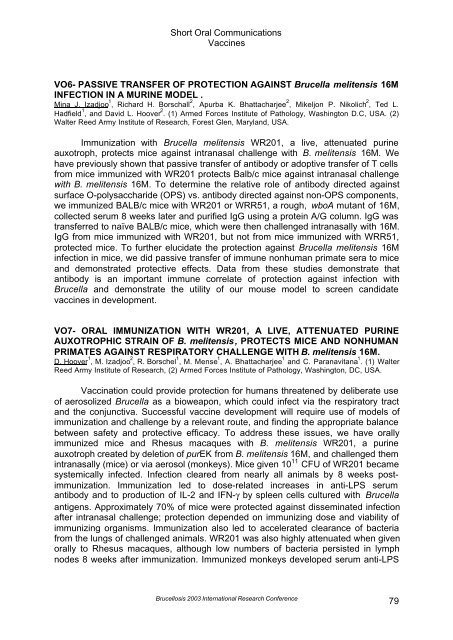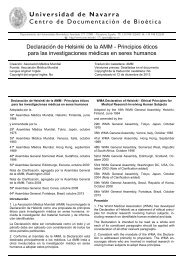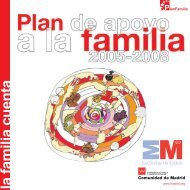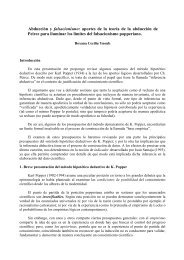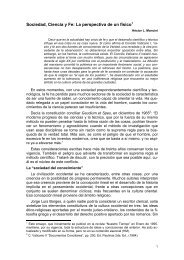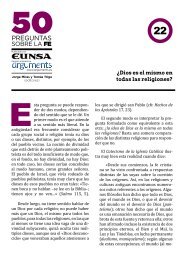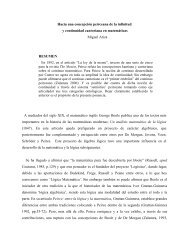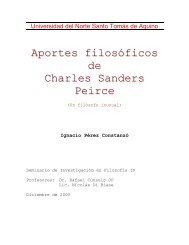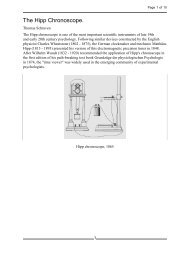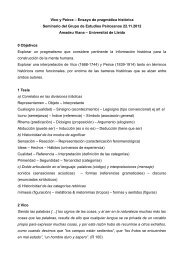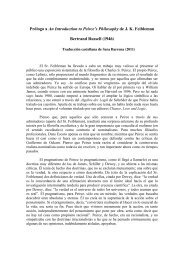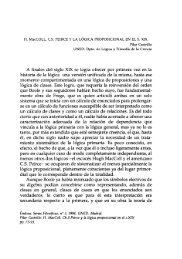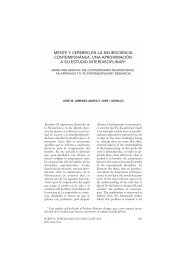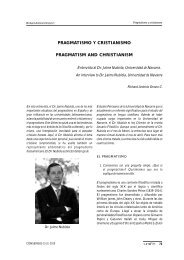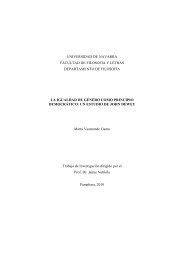Brucellosis 2003 proceedings - PHIDIAS
Brucellosis 2003 proceedings - PHIDIAS
Brucellosis 2003 proceedings - PHIDIAS
Create successful ePaper yourself
Turn your PDF publications into a flip-book with our unique Google optimized e-Paper software.
Short Oral Communications<br />
Vaccines<br />
VO6- PASSIVE TRANSFER OF PROTECTION AGAINST Brucella melitensis 16M<br />
INFECTION IN A MURINE MODEL .<br />
Mina J. Izadjoo 1 , Richard H. Borschall 2 , Apurba K. Bhattacharjee 2 , Mikeljon P. Nikolich 2 , Ted L.<br />
Hadfield 1 , and David L. Hoover 2 . (1) Armed Forces Institute of Pathology, Washington D.C, USA. (2)<br />
Walter Reed Army Institute of Research, Forest Glen, Maryland, USA.<br />
Immunization with Brucella melitensis WR201, a live, attenuated purine<br />
auxotroph, protects mice against intranasal challenge with B. melitensis 16M. We<br />
have previously shown that passive transfer of antibody or adoptive transfer of T cells<br />
from mice immunized with WR201 protects Balb/c mice against intranasal challenge<br />
with B. melitensis 16M. To determine the relative role of antibody directed against<br />
surface O-polysaccharide (OPS) vs. antibody directed against non-OPS components,<br />
we immunized BALB/c mice with WR201 or WRR51, a rough, wboA mutant of 16M,<br />
collected serum 8 weeks later and purified IgG using a protein A/G column. IgG was<br />
transferred to naïve BALB/c mice, which were then challenged intranasally with 16M.<br />
IgG from mice immunized with WR201, but not from mice immunized with WRR51,<br />
protected mice. To further elucidate the protection against Brucella melitensis 16M<br />
infection in mice, we did passive transfer of immune nonhuman primate sera to mice<br />
and demonstrated protective effects. Data from these studies demonstrate that<br />
antibody is an important immune correlate of protection against infection with<br />
Brucella and demonstrate the utility of our mouse model to screen candidate<br />
vaccines in development.<br />
VO7- ORAL IMMUNIZATION WITH WR201, A LIVE, ATTENUATED PURINE<br />
AUXOTROPHIC STRAIN OF B. melitensis, PROTECTS MICE AND NONHUMAN<br />
PRIMATES AGAINST RESPIRATORY CHALLENGE WITH B. melitensis 16M.<br />
D. Hoover 1 , M. Izadjoo 2 , R. Borschel 1 , M. Mense 1 , A. Bhattacharjee 1 and C. Paranavitana 1 . (1) Walter<br />
Reed Army Institute of Research, (2) Armed Forces Institute of Pathology, Washington, DC, USA.<br />
Vaccination could provide protection for humans threatened by deliberate use<br />
of aerosolized Brucella as a bioweapon, which could infect via the respiratory tract<br />
and the conjunctiva. Successful vaccine development will require use of models of<br />
immunization and challenge by a relevant route, and finding the appropriate balance<br />
between safety and protective efficacy. To address these issues, we have orally<br />
immunized mice and Rhesus macaques with B. melitensis WR201, a purine<br />
auxotroph created by deletion of purEK from B. melitensis 16M, and challenged them<br />
intranasally (mice) or via aerosol (monkeys). Mice given 10 11 CFU of WR201 became<br />
systemically infected. Infection cleared from nearly all animals by 8 weeks postimmunization.<br />
Immunization led to dose-related increases in anti-LPS serum<br />
antibody and to production of IL-2 and IFN-γ by spleen cells cultured with Brucella<br />
antigens. Approximately 70% of mice were protected against disseminated infection<br />
after intranasal challenge; protection depended on immunizing dose and viability of<br />
immunizing organisms. Immunization also led to accelerated clearance of bacteria<br />
from the lungs of challenged animals. WR201 was also highly attenuated when given<br />
orally to Rhesus macaques, although low numbers of bacteria persisted in lymph<br />
nodes 8 weeks after immunization. Immunized monkeys developed serum anti-LPS<br />
<strong>Brucellosis</strong> <strong>2003</strong> International Research Conference<br />
79


